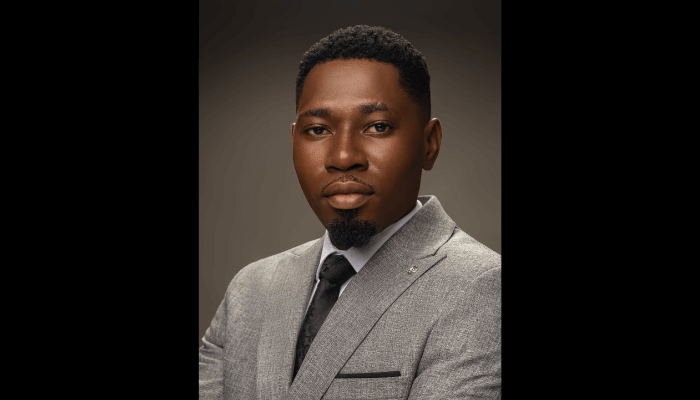‘Your job is funding your future,’ Peter Michael tells professionals on BDTV
In Nigeria’s unraveling business setting, BusinessDay Television (BDTV) has established a reputation beyond just being referred to as a news channel. It has become a forum where professionals, entrepreneurs, and industry stakeholders discuss real issues and propose tangible strategies for confronting the intricacies of business. These entrepreneur-based programs have also helped BDTV enhance financial literacy and bring to light the delicate and subtle balance between “pole of career stability” and “pole of entrepreneurial ambition.”
One of their more recent episodes titled, “Passion to Profit: Balancing Work and Entrepreneurship,” was yet another instance of the above. This program convened an assorted panel representing various industries who provided diverse views on how one manages the tension between holding a nine-to-five job and being active in entrepreneurial undertakings. One that certainly stood out among the contributors to the discussion was Peter Michael Ajassi, an inspired travel entrepreneur, global business strategist, and founder of Fly Connect 102.
Peter Michael started by talking about how tricky it is to juggle a regular job with trying to build your own business. He believes that both a full-time job and a side project are serious commitments, not just something you do casually. They’re complicated and need careful planning, dedication, and ongoing upkeep.
He put it this way: “A regular job and side hustles are complex ideas, and like anything complex, they need extra attention and focus to keep them going strong.”
For Michael, it all starts with changing how you think. Instead of seeing your job as something that gets in the way of your entrepreneurial dreams, he encourages professionals to think of it as a way to invest in their future. “Realize that your current job is paying for your future. The knowledge and experience you get there are exactly what you need to succeed with your side hustle,” he stressed.
Essentially, Peter sees a full-time career as a way to support yourself financially and learn the skills you need to succeed as an entrepreneur. By using the same organization and focus that helps you succeed at work, you can build a stable and sustainable business of your own.
Michael also cautioned that the typical reaction that people have, which is giving up their nine-to-five job when they start a side business, should be delayed. The point he put across was very clear “it is all about timing”. He went on to explain that the income from the business and the profit margins are to be clearly laid out before the decision to be made should be the one of turning full-time in business.
“It is very necessary not to pull out of your 9-5 right away when the business starts growing,” he said. “First, your cash flow and profit margins have to be well defined. Know the workings of your cash flow and come up with ideas on how your business can be a source of creating good experiences that will be a tool for increasing your profit margin.”
He explained the requirement for reflection a lot and even called upon entrepreneurs to consider their business index—the strategies, practices, and models that influence the profitability of the business repeatedly.
“Keep thinking, redefining, realigning, and identifying,” he said, showing that this kind of continual checking is what separates the ventures that survive from those that only last for a while.
Michael’s words were seconded by Ms. Nkechi Alade, another member on the panel, who warned of the dangers of premature departure from mainstream jobs. According to Alade, being a full-time business owner is not suited for everyone, and decisions to quit good jobs must never be made out of emotion.
She explained that entrepreneurship demands some mental preparation—a perspective that tolerates the pros and cons of business realities. Without this self-discipline, she cautioned, professionals risk entering entrepreneurial frontiers with unrealistic expectations, only to be disappointed when problems arise.
Both Michael and Alade, in concert, reiterated the strikingly similar conclusion that entrepreneurs must aim for excellence rather than perfection. Excellence, they argued, is a product of persistent practice and incremental improvement, whereas perfection is too frequently an unreachable ideal that holds one back.
Peter Michael highlighted a contemporary reality that goes beyond cash flow and balance management: the digital marketplace. He maintained that having a strong online presence is now essential for Gen Z and millennial business owners. “You need just the right amount of noise to set your brand apart,” he said. “Remember that you are the brand, so always apply your positive traits to the brand.” Visibility is power to Michael. A strong digital footprint can make the difference between an entrepreneur standing out and remaining unknown in a world of intense competition. He suggested that business owners view themselves as brand ambassadors, bringing their own authenticity and credibility to the way they promote their companies.
The programme successfully shed light on the complex nature of striking a balance between work and entrepreneurship by bringing together a diverse panel. Alade’s cautions against making snap decisions were reinforced by Michael’s observations on timing and cash flow. Other panellists also emphasised resilience, value creation, and self-awareness. Their combined voices provided a thorough overview of what it takes to succeed as a professional entrepreneur in modern-day Nigeria.
At the same time, entrepreneurship is fun, but it is not an easy way; it is a discipline that requires patience, structure, and a strategy. Peter Michael beautifully captured the wisdom professionals must carry with them: “your job today is funding your future”.
A career should not hamper entrepreneurship; rather, it can become an enabling factor for entrepreneurship to flourish. With patience, financial clarity, and the willingness to keep realigning, professionals can turn their passion into profit without compromising their stability.

